Not All Sports Drinks Are Equal: How to Choose the Right Fuel for Triathlon Performance
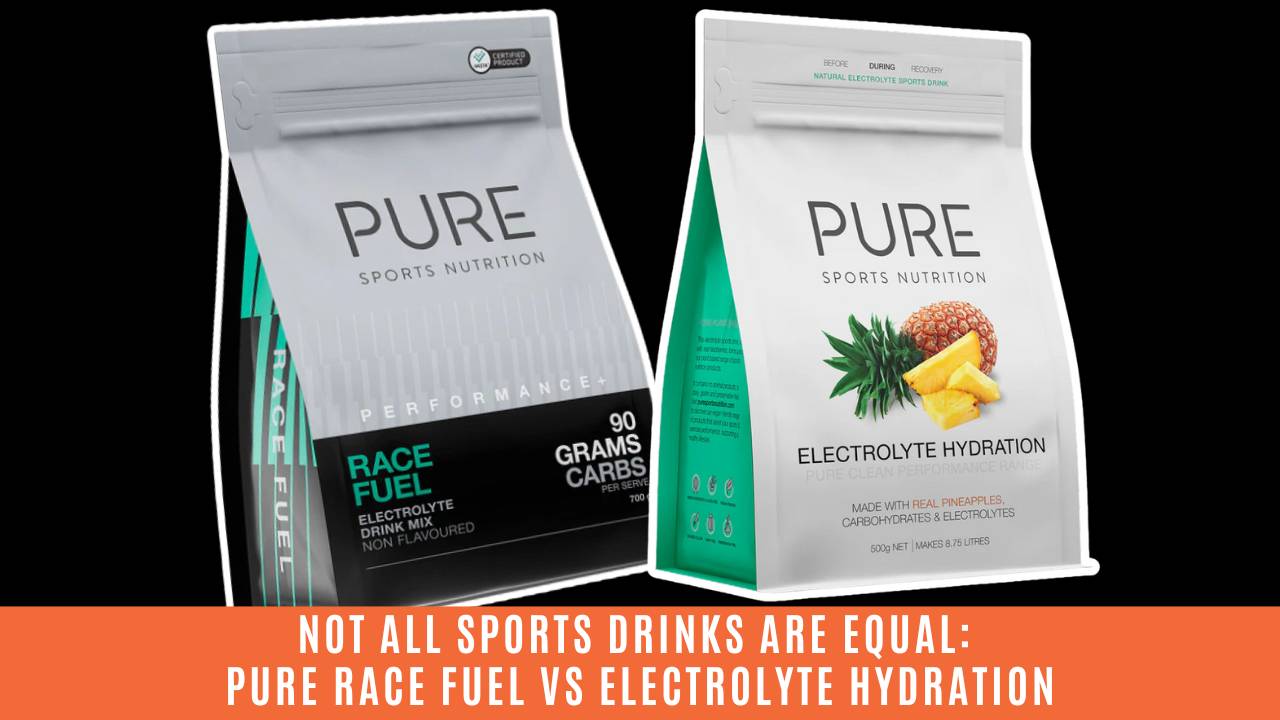
If you’re a triathlete chasing performance, you already know nutrition is your fourth discipline. But here’s a hard truth: not all sports drinks are created equal - and choosing the wrong one could mean GI issues, under-fuelling or simply bonking at the worst possible moment.
In this deep dive, we’ll compare two products from Pure Sports Nutrition - Race Fuel and Electrolyte Hydration and unpack why knowing what’s in your bottle can make or break your race day.
The Problem with One-Size-Fits-All Sports Drinks
Both of these products are marketed as “sports drinks,” but they have vastly different compositions and uses:
- Race Fuel is designed for endurance fueling with a massive 90g of carbohydrate per serve
- Electrolyte Hydration is more of a traditional sports drink, containing 12.5g of carbohydrate per scoop
Sounds straightforward? Not quite. If you’re just following label instructions, you could be missing the mark entirely.
What’s in Pure Race Fuel?
Race Fuel sits in Pure’s...
From Fasted to Fuelled: How Smarter Nutrition Helped This Triathlete Smash Her PBs and Qualify for Kona

When Samantha Zeps first got into triathlon, she never imagined she’d be standing on the top step of the podium — let alone qualifying for the Ironman World Championships in Kona.
A full-time professional, busy mum and dedicated age-group athlete, Sam was already training hard and showing up consistently. But like many triathletes, she found herself plateauing: tired in the afternoons, recovering poorly, and missing the spark to go from strong… to elite.
The Turning Point: From Calorie Counting to Performance Fuelling
For years, Samantha — like so many others — thought nutrition was just about eating less to stay lean. “I’d skip meals, do fasted training, and hold off eating after sessions to burn more,” she says.
The problem? She felt wrecked. By mid-afternoon, her energy would crash. Long training days left her completely wiped out. Recovery was slow. And race results didn’t match her effort.
The real shift came when she stopped thinking about food as something to restrict — and...
The Real Cost of Poor Nutrition for Triathletes (It’s More Than You Think)
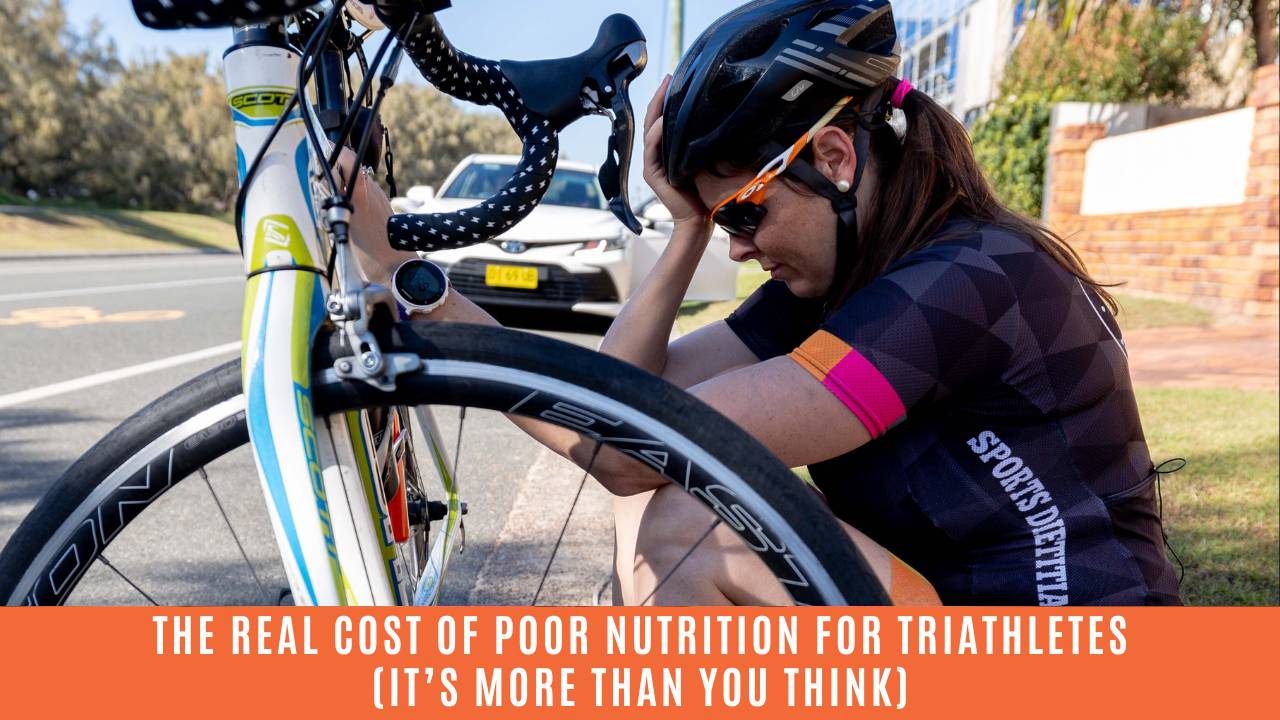
You’re training hard. You’ve got your swim, bike and run sessions scheduled in, maybe even some strength training. But if your nutrition isn’t dialled in, you could be flushing all that hard work down the drain.
In this post, I want to shine a light on something most triathletes never calculate: the real cost of poor nutrition. And spoiler, it’s not just a bad race day or a mid-run gut explosion. We’re talking about:
- Wasted time and energy
- Thousands of dollars down the drain
- Lost performance you didn’t even realise you had in you
Let’s lift the lid.
Obvious Costs: What You Do See
These ones hurt — and most triathletes can relate:
1. Race-Day Blow-Ups or DNFs
You’ve trained for months, only to DNF because of gut issues, dehydration, or cramping. Factor in race entry fees, travel, accommodation, gear — not to mention the emotional toll. It’s not just gutting. It’s preventable.
2. Injury from Underfueling
Think stress fractures, tendon issues, or burnout from poor recovery....
Smashing Her First Ironman: Christina's Journey to the Finish Line
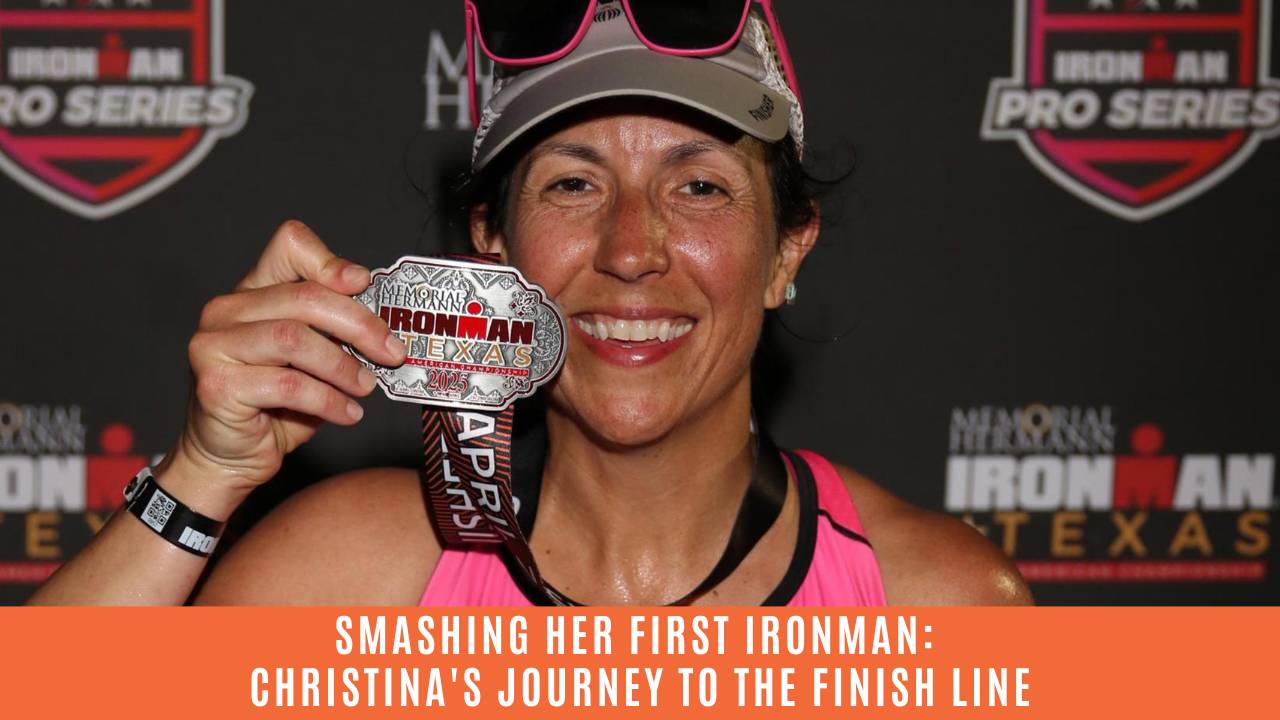
Completing an Ironman isn’t for suckers. It's something that many triathletes dream about and today, I want to share the story of one of my Triathlon Nutrition Academy athletes, Christina, whose journey to the finish line of her first Ironman is truly inspirational.
Christina isn't a professional athlete – she's a full-time interior designer and dedicated mother who held onto her Ironman dream since her post-college days in Tucson, Arizona. Fast forward 18 years, after juggling work, family, and fitness, Christina finally decided to take the plunge into this mammoth challenge and recently completed the Texas Ironman.
While preparing for race day, Christina navigated the same challenges most of us face – demanding work schedules, family commitments and the constant juggle to fit training into an already packed life. What set her apart wasn't superhuman abilities, but rather strategic planning, a personal and professional support network and an unwavering commitment to her goal.
Her ...
How Do You Lose Weight When Training for a Triathlon?

You're logging endless kilometres in the pool, on the bike and in your running shoes. Your training plan is meticulous. Yet somehow, the numbers on the scale refuse to budge. If you're feeling exhausted, constantly hungry and frustrated that you’re not losing body fat despite all that training, you're not alone. This is one of the most common struggles I see as an advanced sports dietitian working with triathletes.
The truth is, you simply cannot out-train a poor diet.
There’s No One Size Fits All
Next time you're at an Ironman event, take a look at the athletes around you - they’re all different shapes and sizes. Many of them train 15+ hours a week but still struggle with body composition. The disconnect often stems from a fundamental misunderstanding of how our bodies respond to training and nutrition.
It sounds like a contradiction, but under-fuelling during heavy training doesn't lead to fat loss – it leads to compromised recovery, diminished performance and a body that clings ...
FORM Goggles Review: Game-Changer or Waste of Money?

If you've ever found yourself 300 meters from the buoy on race day or struggling to maintain pace during training, there might be a high-tech solution out there for you.
No magic bullet will ever replace good old fashioned swim training, but could FORM Smart Goggles be game changer?
Or are they just a fancy new gadget, or even worse, a complete waste of money?
Today I’m joined by Brenton Ford from Effortless Swimming to give us a no BS review of the FORM Smart Goggles. These high-tech goggles provide real-time metrics displayed right before your eyes as you swim but at nearly $300, are they worth the investment?
You might know Brenton from his popular technique videos on YouTube or his coaching programs that have helped thousands of triathletes become way more efficient swimmers. With thousands of success stories under his belt, Brenton shares his professional and practical perspective on this product. There’s no sponsorship here, so rest assured this is his honest and unbiassed r...
Long Ride Fuelling: 5 Real Food Ideas from a Sports Dietitian

Let's be honest – choking down another gel at hour three on a long ride isn't anyone's idea of fun.
If you’re done with flavour fatigue, you’ve been struggling with nasty GI issues or you’ve crawled home like a zombie after bonking mid-ride, this episode is for you.
While gels and sports nutrition products have their place, they're not the only answer to fuelling your long rides. Fuelling doesn’t have to be expensive or gut-destroying. There are loads of real food options that taste amazing and keep your energy up from start to finish. Today I’m sharing five of my go-to real food ideas for long ride fuelling.
Why Real Food Matters
When it comes to sessions longer than two or three hours, proper fuelling isn't optional—it’s essential. Without effective fuel, you're risking poor performance and compromising recovery and immunity. Consistently under-fuelling can lead to fatigue, poorer training adaptations, and even hormonal issues. Let's avoid that by being strategic about our nu...
Creatine Gummies vs Powder: Which One Actually Works?
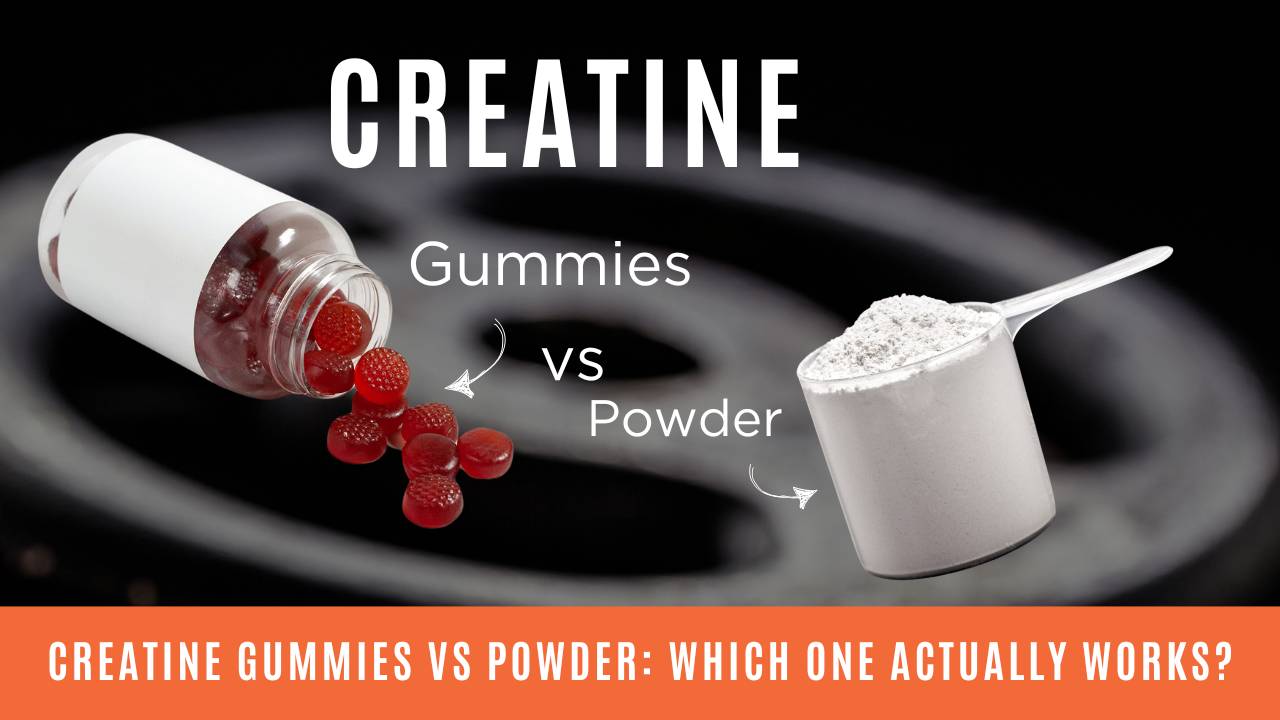
Creatine is having a serious moment right now! From bodybuilders to busy mums, we’re all being told to jump on the creatine bandwagon to improve our strength, muscle mass and performance.
And to sweeten the deal, creatine is now available in the form of convenient and tasty gummies
that claim to give us the same muscle boosting powers and benefits as the powder.
But is that actually true?
And should everyone really be taking creatine?
What Exactly Is Creatine?
First things first—why is creatine all the rage? Found naturally in our muscles, creatine helps generate energy for those intense, short bursts of exercise. It's one of the most researched supplements for improving strength, muscle mass, and performance but not everyone needs to jump on the creatine train. It’s not a one size fits all solution and we need to be far more strategic when it comes to supplementing with creatine.
Gummies vs. Powder
The allure of creatine gummies is pretty obvious —they’re convenient an...
The Triathlete’s Guide to Thyroid Nutrition
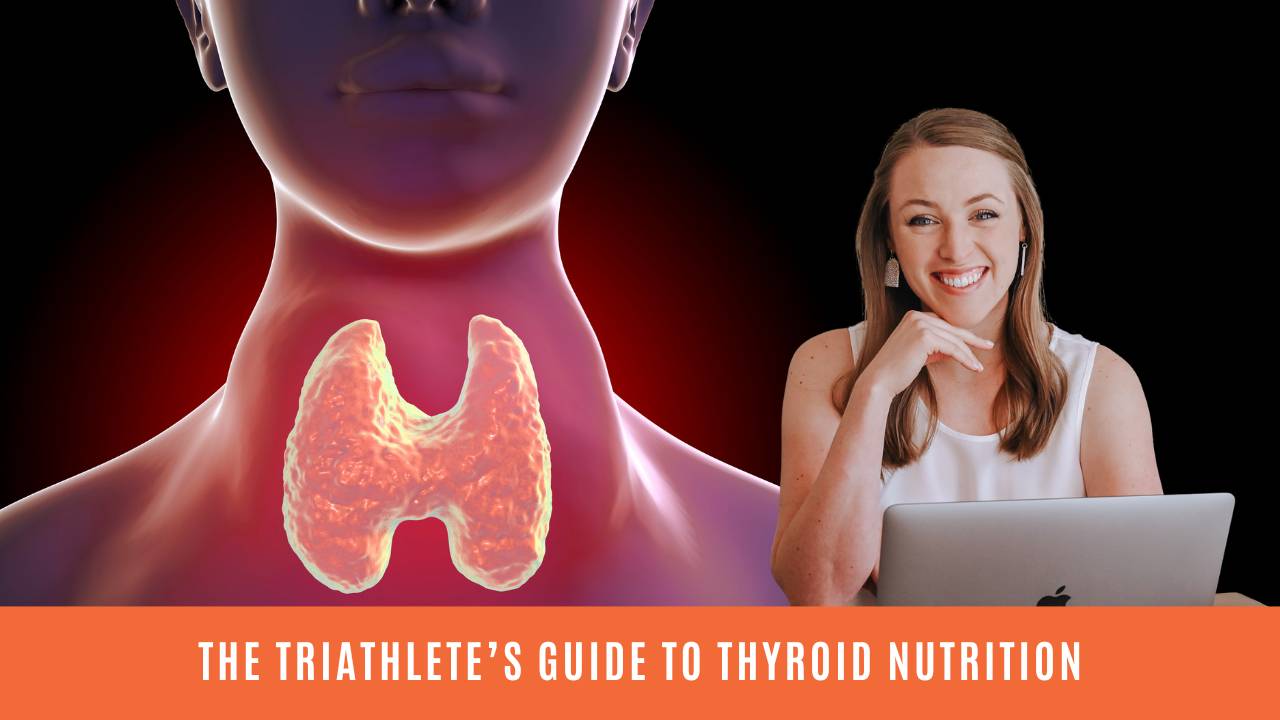
Nailing your training but can't shift those stubborn kilos? Maybe you’re battling gut issues despite a dialled-in nutrition plan or even dragging yourself through sessions after a solid 8 hours sleep.
If this sounds all too familiar, it might be that your thyroid has been flying under the radar.
As a sports dietitian, I'm seeing more triathletes pushing through these warning signs – constant fatigue, resistant weight, bloating, and mysterious gut problems – not realising there's a tiny butterfly-shaped gland in their neck calling the shots.
Thyroid health isn’t my area of specialty so today I’m joined by Registered Dietitian and Functional Practitioner, Alisha Knicely, to talk about about how this powerful gland affects everything from your race-day performance to your Monday morning motivation.
Diagnosed with an autoimmune thyroid disease in 2017 , Alisha’s drive to understand what was happening in her body was a turning point in her career. She now specialises in Hashimoto’s an...
Heart Rate Variability (HRV) for Triathletes: What It Is, Why It Matters & How to Track It
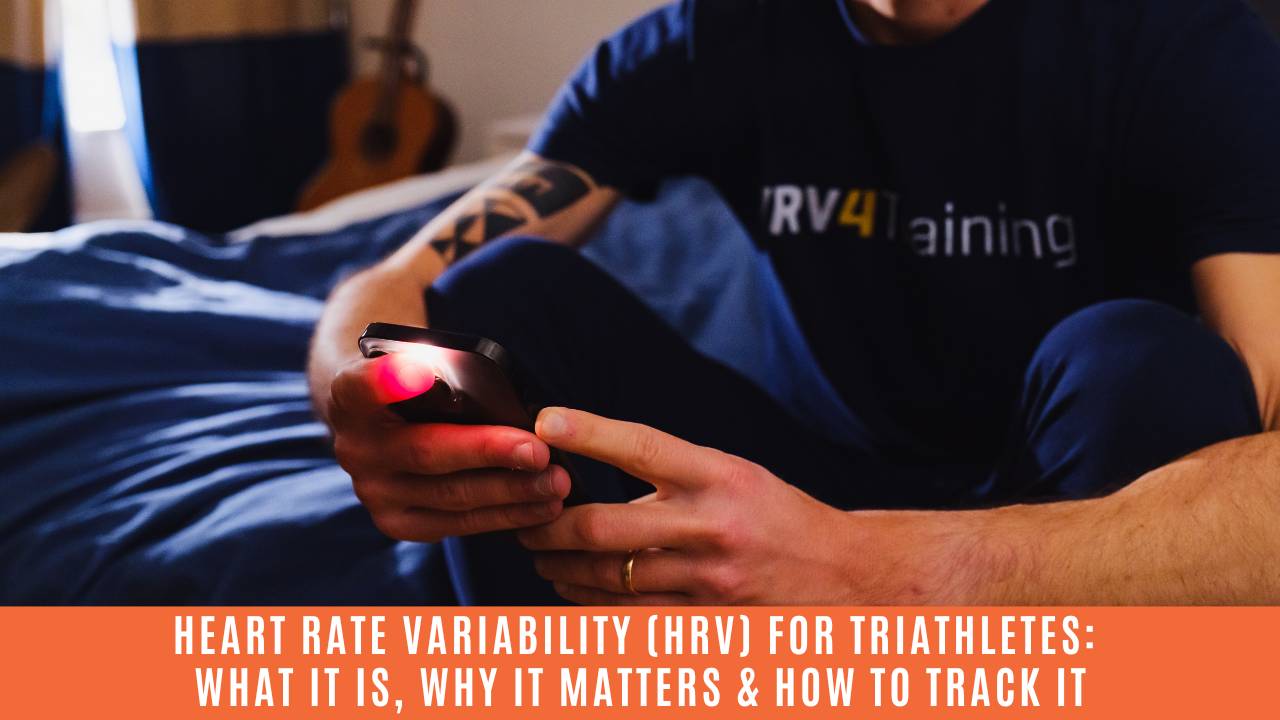
Do you ever wake up feeling shattered but you just make yourself train hard anyway?
I know it sounds like the thing you should do, but is that actually the best thing for your recovery, your performance and ultimately, your body?
As triathletes, we’re masters at tracking watts, pace, and heart rate but there's another metric that could revolutionise your training decisions. Enter Heart Rate Variability (HRV) – your body's daily report card on recovery and readiness.
Today I'm getting nerdy with Daniel Roland from HRV4Training to learn how tracking your HRV can help you get the most out of your training sessions, understand your recovery and avoid burnout. And all it takes is one minute every morning.
What's HRV and Why Should You Care?
Think of HRV as your body's daily stress barometer. It measures the variation between your heartbeats, giving you a window into your nervous system's state. Low HRV? Your body's in fight-or-flight mode. High HRV? You're recovering well and ready to...


